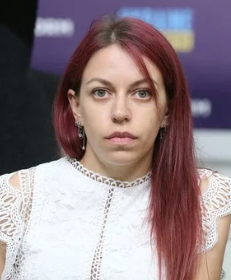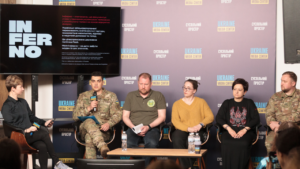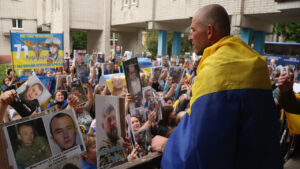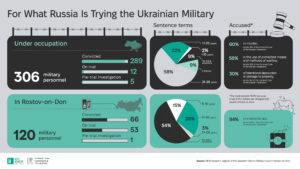Ryazhsk PDC No. 2: how Ukrainian POWs are tortured in Russia
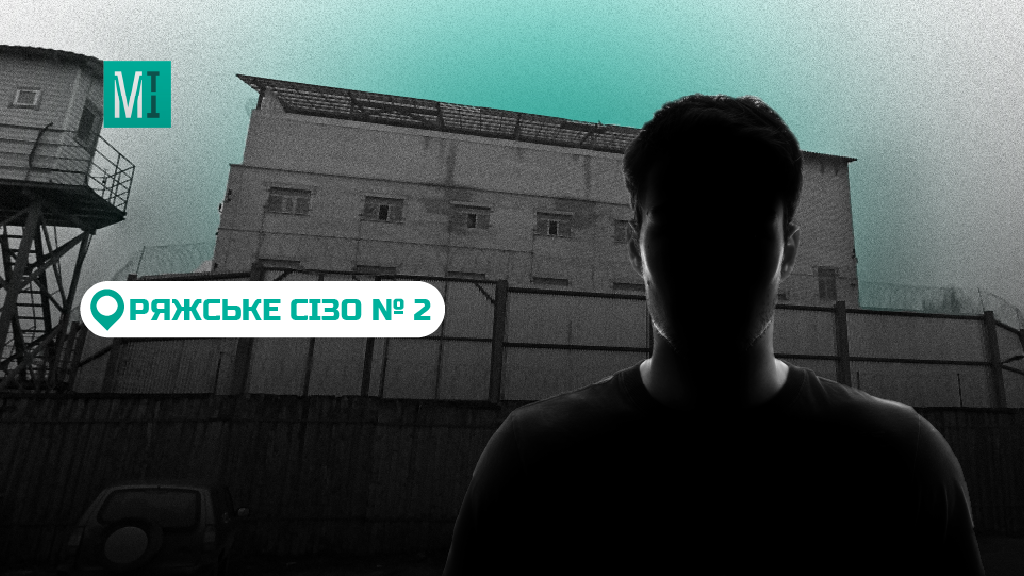
Ryazhsk is a town in Ryazan Oblast and one of the many points on the Russian map where prisoners of war from Ukraine are taken. General Detention Center No. 2 is at 1A Krasnaya Street. This is where the Russians held serviceman Serhii together with hundreds of other Ukrainian soldiers for more than six months. At the man’s request, MIHR changed his name in this article so that he could speak freely about what is happening in Ryazhsk PDC No. 2.
Cruel torture by Spetsnaz
Serhii was captured in April 2022, held for several days in Olenivka Penal Colony, and then transferred to Ryazhsk, Russia, where he spent more than six months.

Route from Volnovakha Penal Colony No. 120 (Olenivka) to Pretrial Detention Center No. 2 in Ryazhsk
“We were brought to a military airfield near Taganrog and put on the floor of a cargo plane. Blindfolded and handcuffed, we didn’t know where we were going. Then we were dropped off ruthlessly. Spetsnaz [special forces] members would take us by the arms and lead us to the car, ‘accidentally’ knocking our heads against the door on the way.
Admission started at 3 AM and lasted until lunch. The guys who were the first to leave the prison trucks were unlucky—rested spetsnaz, new prisoners. The boys said 15 of them were standing in line, and a spetsnaz member would hit them all on the head. I was lucky, my truck was one of the last. They simply stripped me, took my fingerprints, asked if I had killed civilians, checked my tattoos, told me I was a Nazi, and sent me to a cell.”
Serhii was taken to a cell on the fourth floor, a ‘khata’ in prison jargon. Another ex-prisoner interviewed by MIHR, Anatolii, described his cell in PDC No. 2 as “quite clean, redecorated, with bunk beds, a toilet, and video surveillance.” Some cells are designed for four people, while Serhii’s cell held six.

Ryazhsk PDC No. 2 is quite old, but ex-prisoners say that cell conditions are OK
“At first, they would beat everyone all the time. You leave the khata, you are beaten. During my first two weeks in Ryazhsk, interrogations were brutal. Military spetsnaz would beat us to testify.
My first interrogation was in April 2022. I was called in, allegedly, to get to know each other. Their first question was, ‘Whose is the Crimea?’ Unaware what to answer, so I said that the Crimean Tatars’. This was a wrong answer. So, here I am lying on the floor, being beaten up. They put me up and ask again, ‘Who is Putin?’ I answer, ‘President.’ Wrong, they knock me down again. ‘The president of your future state,’ they explain to me. Then they ask who Zelensky is. I tell them, ‘My President.” They shout, ‘Wrong, you faggot.’ They had a few more questions that I didn’t know the correct answers to. That’s when I learned what tasers are.
But this can be considered a light interrogation—it was conducted by an FSB member. It is worse when the spetsnaz takes over. You are thrown into a room and must always keep your eyes on the floor. There are six healthy blokes in front of you, all pros, they know what to ask, how to ask, where to hit. They would punch professionally, aiming for kidneys, the inner thigh, using an electric shocker for the neck, spine, groin, ears.”
Serhii was interrogated 11 times, including nine with beatings. However, despite constant beatings, the man did not break down and would keep answering “no” or “I don’t know” to all their questions. Anatolii was also summoned for a few interrogations. But on finding out that he had been mobilized, they realized they could get no useful intel from him: “They just practiced on us.”

Any exit from the cell is followed by physical violence
POWs were beaten not only during interrogations. For example, going to the bathhouse involved beating. They were also beaten in the cells. Once a man was beaten so badly that he could not use his right hand for two months.
“They dressed me, washed my dishes, helped me make the bed. I couldn’t even lift a spoon. At first, we washed for 30 seconds. Once we went in to shower, but the guard was in a hurry. You just open the tap to hear him order, ‘Close the tap and get out.’
On leaving your cell, you have to stand next to the wall with your legs stretched as much as possible, almost doing splits. And you keep your hands up. Sometimes I would have to stand like that for three hours. And if someone comes to your khata, you have to bow very low so that your head is almost at your own knees’ level.
Meals were bad. Three times a day, but bad. Once, on Russia Day, June 6, they gave us a book to read, and backgammon to play for three days.
Every prison guard had fun in his special way, so to speak. We were forced to learn the anthem of Russia, and those who knew it had to tell it. Later, they started taking us to the 5th floor, where we could have a walk once a week. This is a similar khata, only in the open air. Once a spetsnaz member tells us, ‘Sing the Russian anthem.’ Everyone begins to sing, but nothing good comes out. So a guard says, ‘Plank position, it’ll help you,’ and the other one retorts, ‘Stop! You can’t sing the Russian anthem lying down.’ We didn’t know and didn’t hear the names of our guards, we just recognized them by their voices and gave them call signs.”
It is unbearable to be in complete silence
Serhii believes that he was lucky to some extent, because he was in the cell with other people whom he could talk to. This helped him not to lose his mind.
“It is simply unbearable to be in silence for 16 hours. I was lucky to have smart people in my cell. We talked about books, games, movies, history, politics.
We were allowed to sit on a bench, but it is designed for four people, and there were six of us. Two had to walk around. We counted seconds, counted window bars—741. And we also did squats in the toilet, because there wasn’t enough space. You weren’t allowed to work out in the cell. They believed we were preparing for an escape this way.
But at least health care was OK. If you had a complaint, a doctor would come and give you some medicine and vitamins. When a prisoner got sick with a very high fever, he was given bed rest for three days.”
Like in several other places of detention of Ukrainian POWs, several local prisoners were kept as servants in Ryazhsk PDC No. 2. They would clean up and dispense meals.

Once a week, Ukrainian military personnel can have a breath of fresh air in a special cell on the fifth floor. They are given 15 minutes for this
Prisoners were allowed to write formulaic letters home, reading “Russia and Ukraine are brotherly nations.” No one in Serhii’s cell wrote these words. They wrote that they were alive and doing well. However, not a single letter would reach their relatives.
“Each cell has a loudspeaker. One day we were all asked to give our last name. And the next morning we wake up, the guard comes in for a check, calls my last name and says, ‘Out with your stuff.’
When first brought to Ryazhsk, everyone was given overalls. My things were stuffed into a bag, signed with my last name, and thrown somewhere. My clothes are dirty, bloodied, smelly, kept in the bag for eight months. And the overalls I was wearing, we washed them once a week: underwear, shirt, jacket, pants. They took it all and gave me back my clothes. And took me for an exchange.”
Serhii only heard that civilians were also held in PDC No. 2, but he never met them. He describes his time in Ryazhsk PDC as tolerable. He says that he talked to other released prisoners who were much less fortunate than him. Throughout his captivity, the man dreamed of returning home and going to defend his Motherland again.


